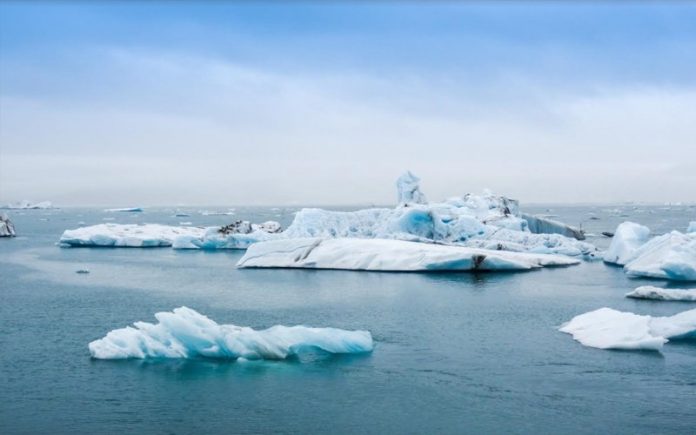
PARIS: While human activity is partly, if not mainly, responsible for global warming, researchers are wondering about some sudden increases in Arctic temperatures.
A new study suggests that several major earthquakes that occurred at different times in the twentieth century may explain this phenomenon.
Global warming has become a key issue for humanity, and it is the subject of much research aimed at understanding its causes and finding appropriate solutions to limit the damage.
While we know that it is mainly caused by human activity, through the increase in the concentration of greenhouse gases in the atmosphere, scientists are wondering about more sudden phenomena, such as abrupt increases in temperature in the Arctic.
Researchers who have been working on the subject for decades have observed two periods of abrupt warming in the region – one in the 1920s and 1930s, and a second that began in the 1980s and continues today.
Leopold Lobkovsky, a researcher at the Moscow Institute of Physics and Technology (MIPT), suggests that these abrupt temperature changes could be due to geodynamic factors.
Lobkovsky looked at historical data showing that the Aleutian Arc was the site of two series of major earthquakes in the 20th century, each of which preceded a sudden rise in temperature over 15 to 20 years.
He then sought to determine and understand the mechanism that might allow lithospheric disturbances to move over 2,000 kilometers from the Aleutian Islands to the Arctic plateau region.
His work shows that tectonic waves would move about 100 kilometers per year, which would correspond to the time delay observed between each series of earthquakes and the temperature rise, since it would take between 15 and 20 years for the disturbances to spread over 2,000 kilometers.
Published in the journal Geosciences, the study notes that these disturbances would be the cause of an increase in methane emissions, leading to global warming in the region as well as sharp increases in temperature.
It remains to be seen whether Lobkovsky’s model will be confirmed by his peers. A few days ago, Danish researchers suggested that melting sea ice in the Arctic could itself be the cause of sudden global warming.


